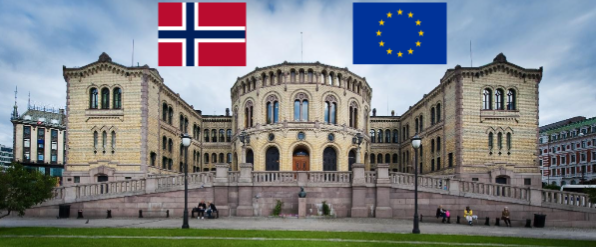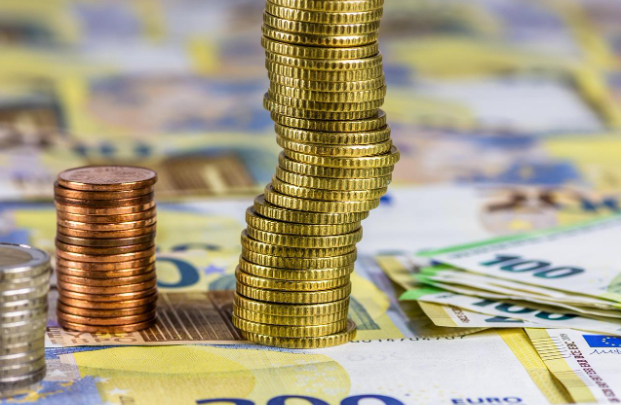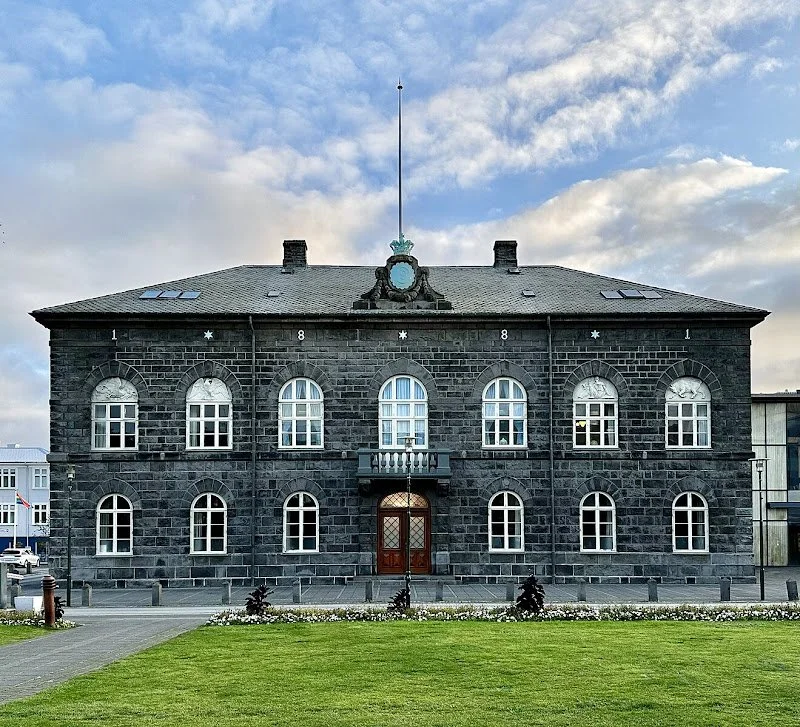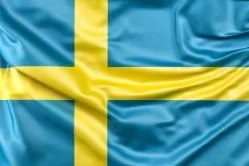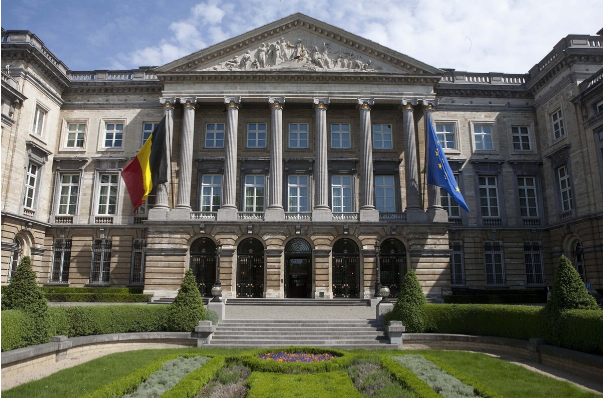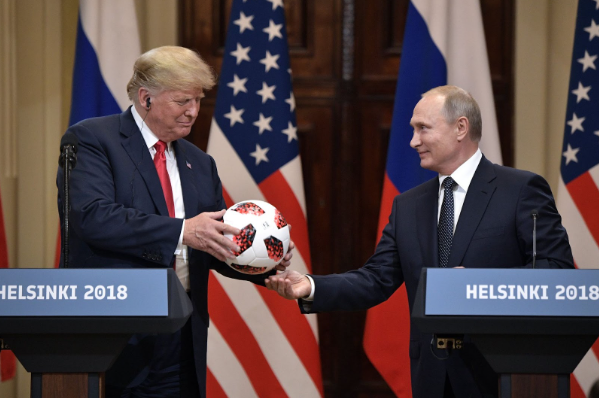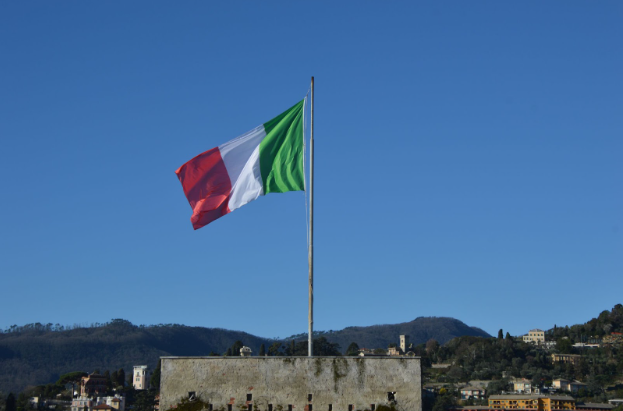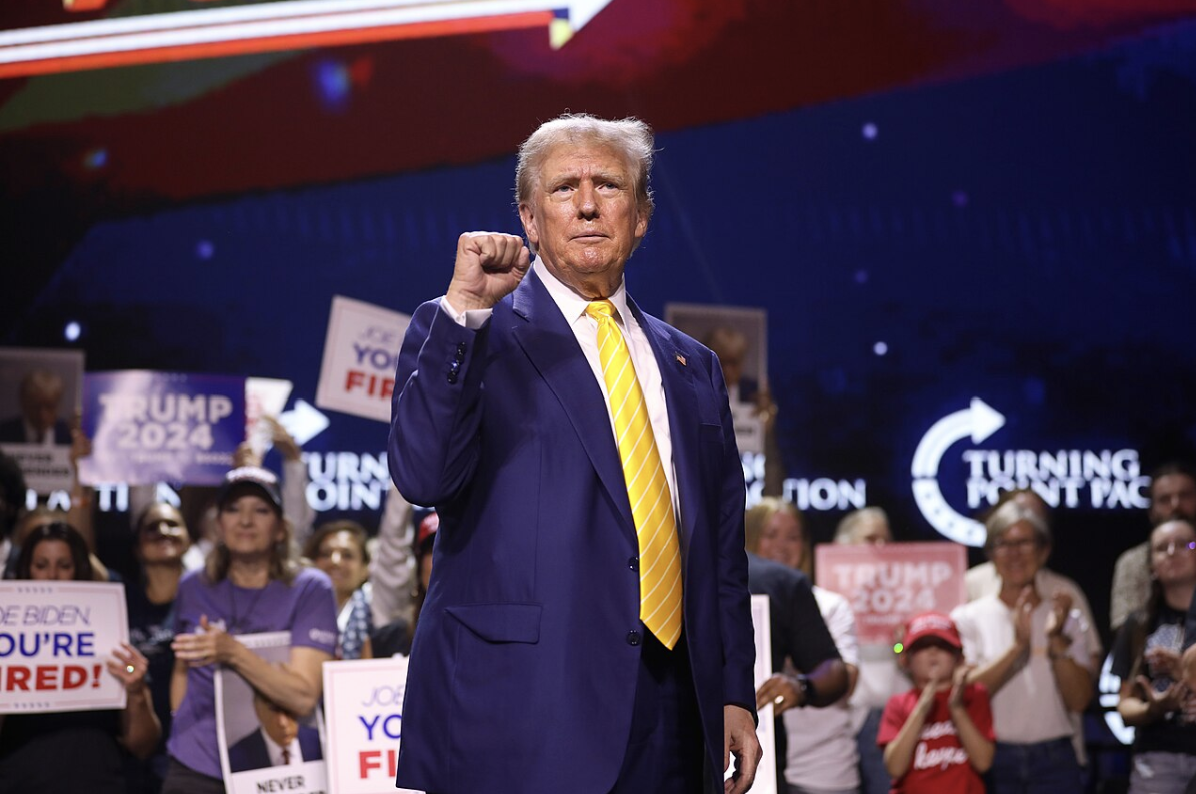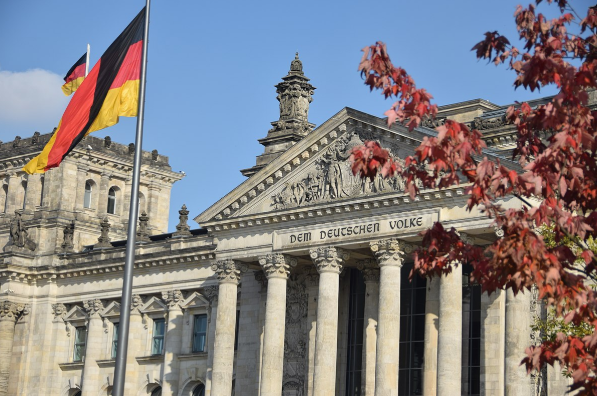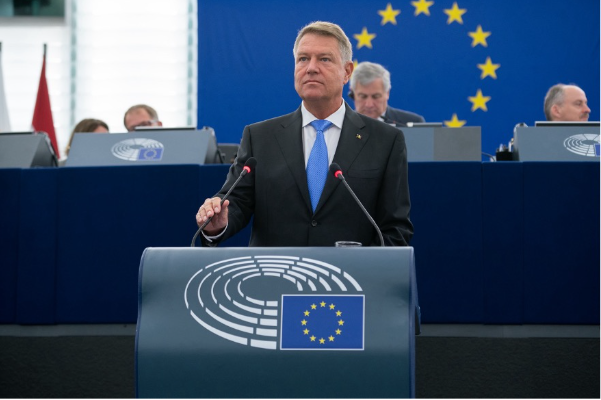
Zooming In
EU Enlargement- Is that still a thing?
By Margaux Baudry
If you feel like the EU enlargement has been stagnating for the past couple of years, it is because it has. Indeed, the last time the number of EU member states changed was when the UK withdrew in 2020. Before that, it was when Croatia joined the club in 2013. Enlargement is a natural phase of the process of European integration: the EU has been enlarging since its origin, and its expansion, for many, is considered one of the Union’s great successes.. Currently, seven states have been granted candidacy for the EU: Albania, Bosnia and Herzegovina, Georgia, Moldova, Montenegro, North Macedonia, Serbia, Türkiye and, last but not least, Ukraine. So, why is the process of enlargement at a standstill?
5 Years after the COVID-19 pandemic - Are we still affected today?
By Anna-Magdalena Glockzin, 3 minutes.
Lockdowns, masks, vaccination, distance, online… These are all words we associate with the COVID-19 pandemic and they feel like echoes of a distant past. When the Coronavirus hit the world and spread fast, it caused a pandemic and led to millions of deaths, numerous shocks to economies and health care systems around the world, and much more. The pandemic started five years ago and at that time, several countries had imposed lockdowns on their population. Nowadays, it seems like the virus has been defeated and everything went “back to normal”. But this can be misleading and in the following, it will be explained why. Additionally, it is worth examining to what extent the European Union (EU) has learnt from the global crisis and whether it would be prepared for a similar shock in the future. This will be discussed in a follow-up article.
The New Faces of the Far-Right- Have Old White Men Gone Out of Style?
by Margaux Baudry, read 3 min
Not so long ago, far-right politicians were easy to spot in the wild. They were mostly older, wealthy white men, much like their supporters. But nowadays, as it turns out, diversity is trendy even for far-right parties. We can wave goodbye to typical far-right leaders, as one-size-fits-all is completely out of style. Today, far-right parties are more inclusive than you would expect them to be… Here is the new look of the far-right!
Charlatan or genius? What Javier Milei has achieved economically so far in Argentina
By Federico Fo
Javier Milei, the Argentinian president elected in November of 2023, is well-known around the world for his controversial positions regarding the treatment of national economies, as well as for his political position, which strongly supports a libertarian political and economic system. Such a position may also be referred to as a type of anarcho-capitalism, that opposes any kind of State intervention in the economy. Argentina’s economy is known worldwide for its economic fragility. In response, Milei pledged at the beginning of his mandate to particularly focus on the structural problems of the Argentinian economy, promising to do so through the application of his political and economic beliefs. Argentina has thus become a prominent laboratory for economic and political experiments, attracting attention in the international political environment. In this article, we will explore what Milei has accomplished so far.
Democracy under threat - The current political climate in Slovakia
by Jolanka Kocianová Vuong
reading time: 6 mins 24 seconds
Populism is on the rise! It seems this statement has been repeated quite often these days. Politicians such as Trump, Meloni, and Orban all represent extreme positions and controversial policies suited to populist ideals. However, another lesser-known populist politician is Robert Fico, the Prime Minister of Slovakia. In Slovakia, democracy is under threat on a scale not seen since the 1990s—ranging from assassination attempts to coup allegations, the undermining of the executive branch and attacking the opposition. Fico is evolving into Orban 2.0, drawing scrutiny from the European Union. Yet, this situation has not been widely reported in the news. So what is happening in Slovakia, and how is it threatening the democratic order in Europe?
Gaza's Crisis: A Glimmer of Hope Amidst Humanitarian Devastation
Read Time: 2 Minutes
By Gabriel Panza
The humanitarian crisis in Gaza remains a pressing issue, attracting urgent international security intervention, particularly from the European Union. Commission President Ursula von der Leyen stated that “the ceasefire and hostage release agreement offers hope” but emphasized that the “humanitarian situation remains grim in Gaza.”
The EU’s Partner In The North How two NOs to accession resulted in a close relationship between Brussels and Oslo
Kristoffer Saetre Reading time: 3:30 min
Norway has recently been shaken by a governmental crisis. Legislation regulating the energy market has caused a break between the social democratic party (AP) and the center party (Senterpartiet). Interestingly, the legislation in question is EU legislation as part of the energy market package revision from 2024. But wait, why does Norway, a non-EU state, implement EU legislation? What is going on here? This crisis allows us to reflect on Norway’s relationship with the EU and can help us explain why EU energy prices have resulted in a minority government, even though the Norwegian people voted twice against EU accession.
Equal pay in Europe: Where does the Gender Pay Gap stand in 2024?
By Lavinia Tacke, 3 minutes.
The gender pay gap –everybody has heard about it, but what is the current situation in the EU? What is being done to reduce the gap and how does it vary across member states?
Did we forget about climate change?
by: Jolanka Kocianová Vuong
reading time: 3:40 minutes
Extreme weather events have taken news broadcasters by storm! Whether it’s the LA fire, Hurricanes Milton and Helene, or the flooding of Valencia, the trend suggests that these natural disasters will only increase in the coming years. Yet, with all eyes on headlines full of Trump, the extreme right in Europe, or armed conflicts, it seems as if recently the debate about climate change has been relegated to the background. While News agencies should cover a wide array of topics, it is alarming to see that climate change issues only make the news if politicians deny global warming and withdraw from international climate treaties. So why is no one speaking about Climate Change anymore and why does it matter?
France’s Largest Child Abuse Case: How Systemic Failures Enabled a Predator for Decades
By Dori Felber, Read: 2 minutes 46 seconds
Just months after the tragic abuse suffered by Gisèle Pelicot came to light, a former French surgeon, Joel Le Scouarnec, has been accused of raping or sexually abusing 299 victims between 1989 and 2014, making it France’s largest-ever child abuse case.
Is Iceland on the road towards EU membership?
By Anna-Magdalena Glockzin, 2 minutes.
In recent years, the EU has become less attractive in many countries, as proven by phenomena such as Brexit and the rise of right-wing populism, whose leaders often employ anti-Union rhetoric. However, other examples show that joining the EU can still be appealing to third countries. In November 2024, the Icelandic population headed to the polls for a snap election. In the election campaign, the issue of EU membership arose as a crucial topic for the first time in years. Polls showed that becoming an EU member state was voters’ preferred alternative, with 45% of the population being in favour and 35% being opposed to it. But what is the reason behind Iceland's latest spike in Euro-Enthusiasm?
The Future of Swedish Gun Control
by Miruna-Antonia Aniculăesei, Read: 2 minutes 27 seconds
"Being confined to a classroom with fear for your own life is a nightmare that no one should have to experience" were the words of Swedish Prime Minister Ulf Kristersson after the tragedy that struck the country on the 4th of February 2025. In the inland city of Örebro, at the Risbergska Campus, where a school for adult education is located, Sweden’s deadliest mass shooting to date occurred, resulting in 10 dead and at least 6 injured. This unfortunate event represented a wake-up call for Swedish authorities, who are now planning on tightening gun control.
On his Majesty’s Public Service - The new Belgian Prime Minister
By Ben Rosenbaum, Reading Time: 2 minutes, 30 seconds
After months of negotiations and an ultimatum from the King, Belgium has a new government. Its head is Bart de Wever, who ideologically wants the Flemish part of Belgium to become independent but now has to work for the whole country. Where does he come from? And what does his appointment mean for Belgium?
Hi Vladimir, it’s me Donald…
By Anna-Magdalena Glockzin, 4 minutes.
When Neil Armstrong and Buzz Aldrin became the first people to walk on the moon in 1969, then U.S. President Richard Nixon called them from the Oval Office, which marked, according to him, “the most historical telephone call ever made from the White House”. Also, the phone conversation between the then U.S. President Barack Obama and then Iranian President Hassan Rouhani in 2013 went down in history, as it constituted the first instance of communication since 1979 between these two countries. In the last week, there was another phone call made by the current U.S. President, which can be considered historical, although not necessarily with a similar positive connotation.
Elmasry’s Release and Other Mysteries: the investigation against Meloni’s failure to act on an ICC mandate
By Flavia Faraone, 3 minute read
On January 27th, Italian Prime Minister Giorgia Meloni announced that she was under investigation for the liberation of Njeim Osama Elmasry, the head of the Libyan judiciary police. Elmasry had been liberated the previous week, under very unconventional circumstances.
The New Trade War Unleashed by Donald Trump
By Federico Fo, Reading time: 8 min
Immediately after the beginning of his mandate in January 2025, the new president of the United States, Donald Trump, has begun to follow through with the promises made during his electoral campaign, in terms of trade policy. Indeed, Donald Trump announced the introduction of the already planned tariffs that are going to hit some of America’s main trading partners. The latter include Mexico, Canada, China and the EU.
Jamaica, Blackberries, Traffic Lights - A Beginner’s Guide to Coalition Governments in Germany
By Ben Rosenbaum, Reading Time: 4:30 Minutes
With the German Federal Elections coming up, many international observers will be curious as to who will form the next government. But to make this happen, the parties will have to agree on forming a coalition. Germany has a long tradition of coalition governments, and this history provides no shortage of confusing and peculiar names. In this article, I will unpack the potential coalitions, their likelihood after the election and what on earth a traffic light has to do with it.
Under Pressure- Romanian President Resigns
By Margaux Baudry, read 1 min 40
On Monday, February 10th, Romanian President Klaus Iohannis resigned after a third request to remove him from office was scheduled to be discussed and voted on in Parliament on Tuesday. The previous two requests, made by opposition parties, had been denied due to procedural reasons. After two mandates and ten years as head of the country, the pro-EU liberal is stepping off the stage like a disgraced comedian—under the spotlight but without the applause. Let’s look at the events that led to his resignation.
Is there a door in the German “fire wall”?
By Anna-Magdalena Glockzin, 4 minutes.
Since the foundation of the German far-right party Alternative for Germany (AfD) in 2013, there has been a strong consensus among the democratic parties in the German party landscape to hold a so-called “fire wall” (Brandmauer) against them. The concept “fire wall” originally meant that no one works together with the AfD whatsoever. This agreed course of action is grounded in the fact that the AfD is proven to be anti-democratic and in parts right-wing extremist. However, with the rise of the AfD and the shift to the right of the Christian Democrats (CDU), it does not seem to be so clear anymore what the concept entails. One person responsible for that is Friedrich Merz, the CDU’s chancellor candidate. He proposed a five-point plan on migration policy, which passed the German Bundestag with the help of the AfD on 29th of January, causing a massive backlash and heavy discussions in the parliament as well as throughout Germany. But first things first.
Make Europe competitive again
Kristoffer Saetre Reading time 4 min
“We need to spend more, spend better, spend together” (Ursula Von der Leyen POLITICAL GUIDELINES 2024−2029). For the first time ever, the EU will publish a White Paper on European Defence. Tailored to European investment needs, this Paper promises a response to the EU’s challenges at its borders and in Ukraine. Not surprisingly, the defence industry and Academia have already issued their viewpoints. This begs the question: what can we expect from this Paper and how do national defence policies fit within an integrated defence of Europe?






